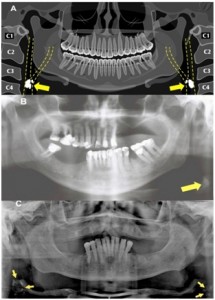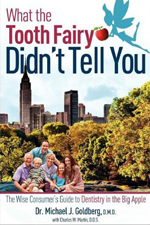Sometimes no matter how cautious we are, accidents happen. Here are a few helpful hits in case something happens to your mouth.
- Get help (professional if you can) and get it as quickly as possible.
- Stop bleeding by applying pressure.
- Ice the traumatized area;10 minutes on and 10 minutes off for 2 hours.
- Keep any lost fillings, caps, teeth or pieces of teeth, keeping them moist in milk or water.
- If you can, take an anti-inflammatory such as aspirin, ibuprofen (Advil) or naproxen (Aleve).
- Don’t go it alone or wait….call your dentist as soon as you can.
To your health and wellness,
Michael

